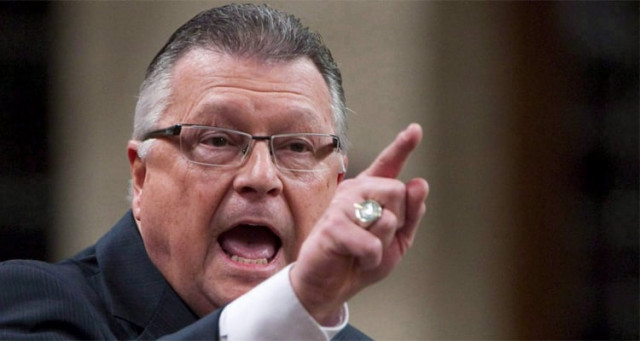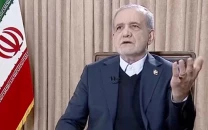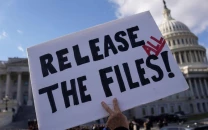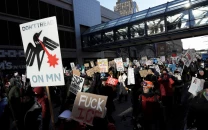Canada to launch counter-radicalization office
'We need to get really good at this -- to preserve our diversity and pluralism as unique national strengths' Minis

Canadian Public Safety Minister Ralph Goodale. PHOTO: REUTERS
Public Safety Minister Ralph Goodale said Ottawa would combine a patchwork of counter-radicalization efforts launched by cities and universities under a new federal office.
"We pride ourselves of being a generous and diverse society," Goodale said. "If we want to keep it that way, we have to be among the best in the world in dealing with radicalization and trying to head off these tragedies before they happen."
Last week's foiled terror plot, and two separate lone-wolf attacks in October 2014 that resulted in the deaths of two Canadian soldiers, have led to demands for a review of Canada's national security framework.
"The largest concern," Goodale said in a statement, "is about lone wolves who get sucked into perverse and extreme ideologies that promote violence."
A new national center for "community outreach and counter-radicalization" will be modeled on existing centers in Montreal and Calgary.
During a visit to the Montreal center, Goodale praised the staff's work and commented that Ottawa hoped to build on their efforts.
"We need to get really good at this -- to preserve our diversity and pluralism as unique national strengths," he said.
Last Wednesday, Canadian police shot dead an alleged sympathizer of the Islamic State group who set off an explosive device in the back seat of a taxi as police approached him.
Authorities foiled the plot after receiving a tip from the US Federal Bureau of Investigation, which intercepted a video of the suspect pledging his allegiance to IS.
Police said they acted to thwart an imminent "potential terrorist threat."
More than 100 Canadian youths have traveled overseas to join IS in Iraq and Syria, according to government figures.
The suspects in the October 2014 attacks -- a hit-and-run in rural Quebec that resulted in the death of a Canadian soldier and the shooting death of a ceremonial military guard in Ottawa days later -- were also linked to IS.
Montreal's counter-radicalization center was set up after seven local teens flew to the Mideast to fight for IS in January 2015, and the arrest weeks later of 10 others aged 15 to 18 years seeking to join them.
"We need to know how to identify those who could be vulnerable to insidious influences that draw certain people -- especially young people -- toward extremism leading to violence," Goodale said.
"We need to understand what positive messages can counteract that poison."



1721969212-0/BeFunky-collage]-(35)1721969212-0-208x130.webp)















COMMENTS
Comments are moderated and generally will be posted if they are on-topic and not abusive.
For more information, please see our Comments FAQ